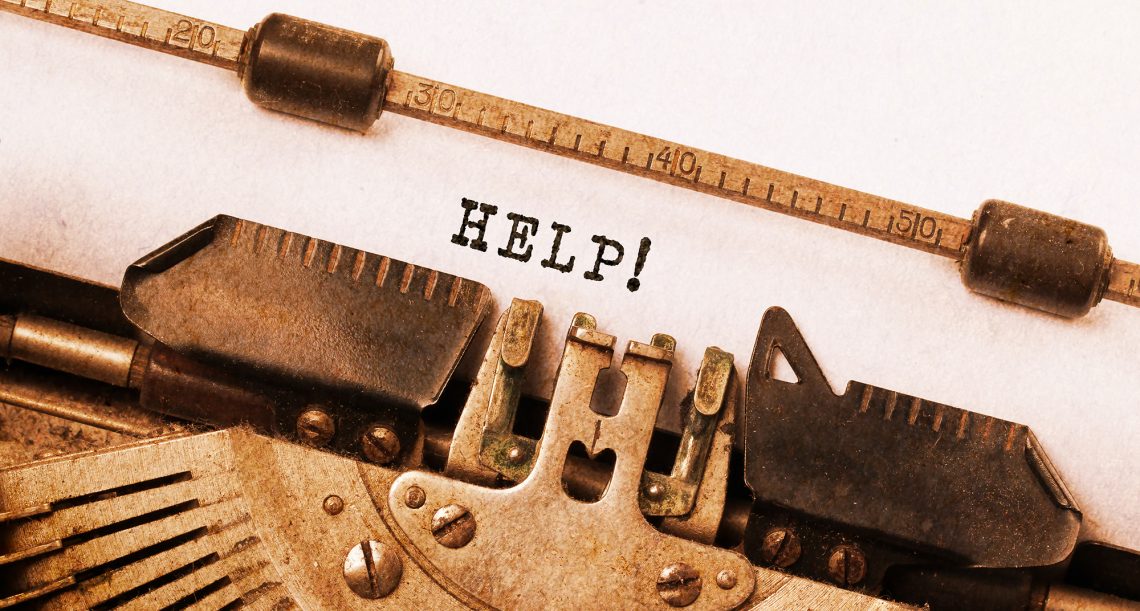My advice for overcoming writer’s block is simple: Keep writing.
I suffered from writer’s block the other day. That’s not a good thing, considering that I write for a living. If it had lasted for too long it could have been very bad for business. The problem is that it happens to me all the time—usually a few times a week. Fortunately, I have developed a strategy for overcoming this recurring problem.
You might expect me to offer some of the more common advice, such as, “Get up and go for a walk, and then come back to it.” Getting away from the project might work for some people, but it doesn’t for me, because I just go somewhere else and keep thinking about it.
I don’t have a lot of patience when the writing process slows down, and I don’t like spending too many non-billable hours during my workday experimenting with new and creative solutions for overcoming writer’s block. When I find myself getting stuck, I just shift gears a bit.
My advice for overcoming writer’s block is simple: keep writing.
Writer’s block is often about the process itself and how you’re doing it. Many of us will sit and agonize over a sentence or a couple of paragraphs and suddenly realize that we haven’t looked up from the screen for an hour or so, and in that time we have gotten nowhere.
In my case, I often find the computer is the problem. For someone who started out in journalism on a typewriter, writing stories under deadline pressure, I can tell you that computers make things too easy. Too easy to keep going back over the same four lines—changing and “correcting” them over and over and over again. Too easy to make the “perfect” sentence. Too easy to get stuck in this never-ending loop. Computers have never made the actual writing process any easier, at least not for me.
I have a few writing tips and editing advice for this challenge. When I find myself struggling over a passage I simply put away the computer, grab a pen and paper, sit in a comfortable chair and start writing down the whole project. I just blast through everything I want to say in the article or report or book chapter or letter or whatever it is—total stream of consciousness, bad organization and grammar mistakes be damned. Once I have that done, I write it all down one more time from scratch. After that, I read through both versions once, and then get back on my computer and open up that file I was working on.
Most of the time, I find I end up trashing what I had been writing on the computer before and start transcribing from my handwritten papers, because the “sloppy” stuff ends up being so much better than what I had been “perfecting.”
A variation of this method also works when you’re far into a project and have a problem with more than just a few passages, because the whole flow and organization of the piece is bothering you. This time though, before you turn off the computer, print the whole thing out, preferably double-spaced, and grab a highlighter and a pen. Go sit in that same comfortable chair. First, though, read through the whole thing and keep the highlighter and pen capped. After that initial read-through, then you can have at it.
Even though I am usually an environmentally minded person, there is some kind of magic that happens when you see the words on paper and pages instead of on the screen. “Oh yeah, duh, this paragraph definitely goes on page 4 instead of page 1.”
When I am reading through a piece I have been given to edit and I can’t grasp the point the client is trying to make by the second or third paragraph, I go straight to the final paragraph, and that is usually where I find it. The client spent all of the time on the project finally getting to the point they were trying to make in the beginning, and that’s the reason the whole thing took so long. That’s another manifestation of writer’s block. One thing I find surprising even after decades of writing and editing for a living is that I sometimes do the same thing, which often results in me switching the last summary paragraph with the first paragraph of the piece.
So the next time you find yourself getting stuck with writer’s block, just turn off the computer, blast through it the old-fashioned way with abandon on pen and paper, and then turn the computer back on.
Lee Reeder is a ghostwriter, writer, editor, editorial project manager and graphic designer with decades of experience. He has also served as a non-profit and for-profit leader and manager.
Like this post? Please share it with your colleagues & friends or visit me on social media.









